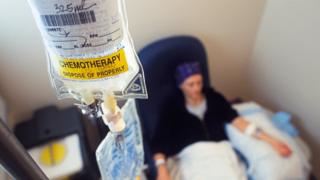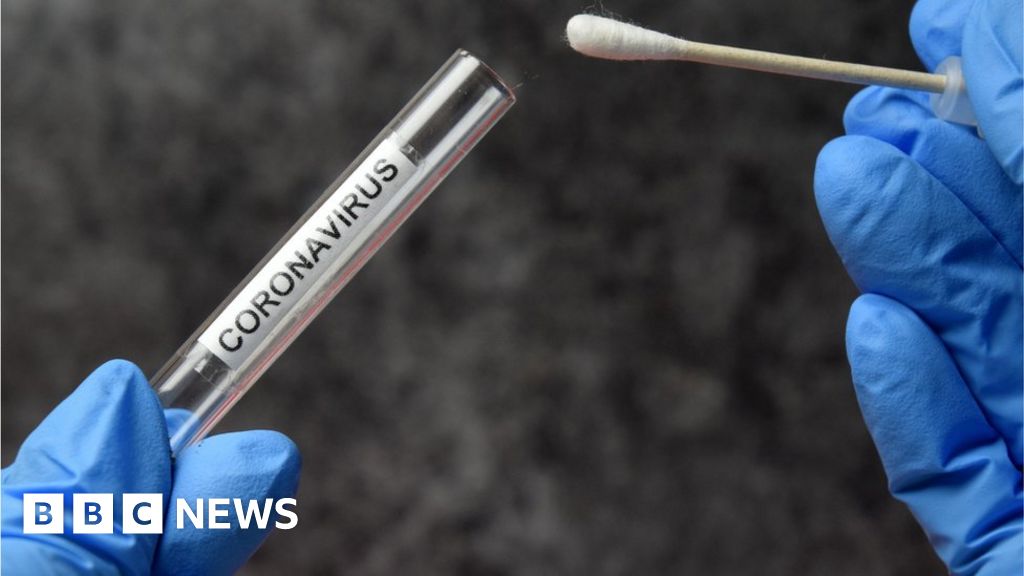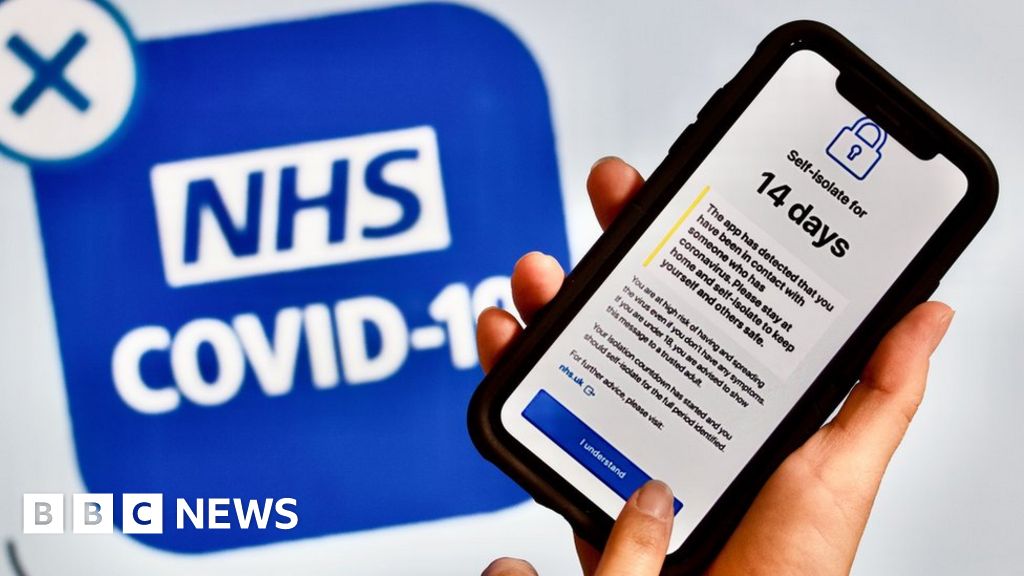 Image copyright
Science Photo Library
Image caption
Cancer patients need to take extra care
Image copyright
Science Photo Library
Image caption
Cancer patients need to take extra care
About 2.5 million people most at risk of needing hospital treatment if they catch coronavirus are being asked to stay at home.
This "shielding" is to protect lives.
Why do it?
While everyone is being advised to keep their distance from other people to help stop the spread of coronavirus, some people with underlying health conditions need to take even more precautions to protect themselves.
The virus poses a high risk if someone who is shielding is exposed to it.
Coming out of lockdown
The guidance on shielding is being kept under review.
Infection levels in the community are now falling so the risk of exposure is significantly less than it has been.
People who are shielding in England and Northern Ireland are able to spend some time outdoors, as long as they continue to follow social distancing rules.
It means those with families can go out once a day with members of their household. People living alone can meet someone from another household while keeping 2m (6ft) apart.
People shielding in Scotland and Wales have been told they can also now spend time outdoors for exercise, either on their own, with their family or with people from another household.
From Monday 6 July in England and Northern Ireland, those shielding from coronavirus can gather in groups of up to six people outdoors, including individuals outside of their household, and form a 'support bubble' with one other household.
Single adults or single parents who are shielding will be able to bubble with any household, and households with a shielded person in it can also bubble with any single person (or single adult with children).
In England and Northern Ireland, the shielding advice is set to be paused from 31 July. After that date people will no longer need to shield but should take particular care when outside and strictly maintain social distancing.
Who should shield?
Those most at risk, who include:
Solid organ transplant recipients Some people with cancer who are undergoing treatments such as chemotherapy and radiotherapy People on immunosuppression drugs Women who are pregnant and have heart disease People with severe respiratory conditions - cystic fibrosis, severe asthma and COPD Some people with rare diseases such as severe combined immunodeficiencyWhile it is true that the risk from coronavirus goes up with age, more than half of those shielding are under the age of 70, say officials. More than 90,000 are children.
Anyone in this highest-risk category who has not yet received a letter from the NHS or been contacted by their doctor should get in touch with their GP or hospital doctor by phone or online.
This does not include all elderly people, although they are strongly advised to practise social distancing.
Is it compulsory?
Experts strongly advise people with serious underlying health conditions to follow the advice. If this applies to you, shielding is for your personal protection - it is your choice to decide whether to follow the recommendations.
You could call your doctor to discuss this.
What does it entail?
It means staying at home and following the guidelines. You should not go out to work, to shop or visit friends in their homes.
You should avoid any face-to-face contact, so that means no visitors.
Visits from people who provide you with essential healthcare and personal support are fine. Carers and care workers should stay away if they have any of the symptoms of coronavirus, and anyone coming into your home should keep their hands clean by washing them with soap and water.
What about any people I live with?
They do not need to shield themselves but must make sure they follow recommendations to shield you.
They should also stringently follow the guidance on social distancing.
They should also keep some physical distance (2m when possible) from you and keep to a minimum the time spent in shared spaces such as the kitchen, bathroom and lounge. Shared spaces should be kept well ventilated - open a window.
If you can, use a separate bathroom and bedroom from the rest of the household, and also make sure you use separate towels.
Image caption Don't share cutleryIf you share a toilet and bathroom, make sure they are cleaned after every use. Consider drawing up a rota for bathing, with you using the facilities first.
Use the kitchen when others are not in there and take your meals back to your room to eat. Coronavirus is spread through droplets (from coughs and sneezes), so do not share cutlery or crockery unless it is clean. Use a dishwasher if you have one. Soap or washing-up liquid and water gets rid of the virus too.
Keep surfaces that are frequently touched - door handles, taps and handrails - clean.
What about my medicine and food?
People in England can register to get essential food and medicine supplies if friends or family cannot help.
Similar support is available in Scotland, Wales and Northern Ireland.
People will retain their priority for supermarket delivery slots, and still be able to access help with shopping, medication, phone calls and transport to medical appointments when shielding is eased in England and Northern Ireland on 1 August.
How long will shielding last?
In England, people have been asked to shield until 31 July In Wales people have been asked to shield until 16 August In Scotland people have been asked to shield until 31 July In Northern Ireland people have been advised to shield until 31 JulyThe ultimate ambition is to be able to control the virus enough so that people can move out of shielding. A vaccine could help enable this.
What should I do if I get a cough or fever?
These are symptoms of coronavirus. It does not mean that you definitely have it, but you should contact the NHS 111 online coronavirus service, or call NHS 111 or your doctor. Do this as soon as you get symptoms. Do not visit the GP, pharmacy, urgent care centre or hospital.
In an emergency, call 999 if you are seriously ill.
Other tips to stay safe and well
Good hygiene can stop the virus spreading:
Keep physically active.
Look after your mental wellbeing. Stay in touch with friends on the phone, by post or online.
Prepare a hospital bag just in case. This should include your emergency contact, a list of medicines you take and any information on your planned care appointments, as well as things you would need for an overnight stay, such as a toothbrush and pyjamas.

 5 years ago
977
5 years ago
977 

